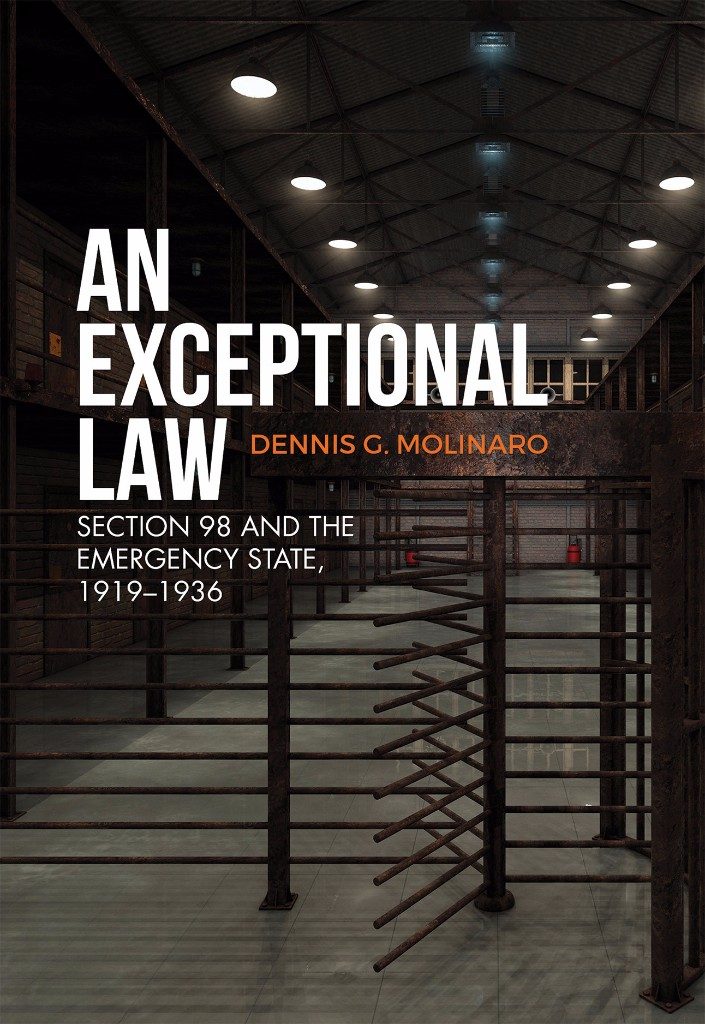
An Exceptional Law: Section 98 and the Emergency State, 1919-1936
By Dennis G. Molinaro, Published by the University of Toronto Press.
Section 98 of the Criminal Code of Canada was passed in 1919 following the Winnipeg general strike as a law aimed at ‘unlawful associations.’ Its very broad definition of unlawful association meant that it could be used against a wide variety of opponents of the status quo, including the Communist Party of Canada, left-leaning organisations of various kinds, and labour leaders.
Although it was justified as part of the state’s ‘emergency powers,’ it became, Molinaro argues, ‘normalised’, part of the ordinary fabric of mainstream society’s approach to dissent. Like other recent Osgoode Society publications, especially Security, Dissent and the Limits of Toleration in War and Peace: Canadian State Trials Volume IV, 1914-1939, An Exceptional Law provides a deeply-researched historical account of a current much-debated question – where is the line between freedom and security to be drawn in a liberal democracy?
REVIEWS OF AN EXCEPTIONAL LAW : SECTION 98 AND THE EMERGENCY STATE, 1919-1936 HAVE ALSO APPEARED IN
Michael Marschal, Saskatchewan Law Review, Vol. 81, 2018, pp. 100-102.
Tom Mitchell, Labour Le Travail, No 81, 2018, pp. 277-278.
Steve Hewitt, Canadian Historical Review, Vol. 99, 2018, pp. 518-519.
Blake Brown, American Historical Review, Vol. 124, 2019, pp. 691-692.
Derek M. D. Silva, Surveillance & Society, Vol. 16, 2018, pp. 131-133.
Larry Hanant, BC Studies, No. 197, 2018, pp. 178-179.
Contents
Foreword / ix
Acknowledgments / xi
Introduction: The Exception / 3
1. For the Protection of People and the State / 19
2. Defining Suspects / 57
3. The Trial / 86
4. Citizens of the World / 120
5. Outlaws / 146
6. Judgment / 185
Conclusion: Towards a Real State of Exception / 222
Appendix 1: Excerpt from the 1910 Immigration Act / 235
Appendix 2: Section 98 of the Criminal Code of Canada, Revised Statutes of Canada, 1927, ch. 36 / 239
Appendix 3: Excerpt from Memorandum for the Prime Minister Re: Bill 73: An Act to Amend Section 98 of the Criminal Code, 12 June 1936 / 243
Notes / 247
Bibliography / 299
Index / 321

